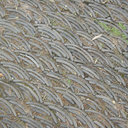Finnish
Albanian
Arabic
Armenian
Azerbaijani
Belarusian
Bengali
Bosnian
Catalan
Czech
Danish
Deutsch
Dutch
English
Estonian
Finnish
Français
Greek
Haitian Creole
Hebrew
Hindi
Hungarian
Icelandic
Indonesian
Irish
Italian
Japanese
Korean
Latvian
Lithuanian
Macedonian
Mongolian
Norwegian
Persian
Polish
Portuguese
Romanian
Russian
Serbian
Slovak
Slovenian
Spanish
Swahili
Swedish
Turkish
Ukrainian
Vietnamese
Български
中文(简体)
中文(繁體)
Journal of Ethnopharmacology 2019-Oct
Vain rekisteröityneet käyttäjät voivat kääntää artikkeleita
Kirjaudu sisään Rekisteröidy
Linkki tallennetaan leikepöydälle
Täydellisin lääketieteellinen tietokanta tieteen tukemana
- Toimii 55 kielellä
- Yrttilääkkeet tieteen tukemana
- Yrttien tunnistaminen kuvan perusteella
- Interaktiivinen GPS-kartta - merkitse yrtit sijaintiin (tulossa pian)
- Lue hakuusi liittyviä tieteellisiä julkaisuja
- Hae lääkekasveja niiden vaikutusten perusteella
- Järjestä kiinnostuksesi ja pysy ajan tasalla uutisista, kliinisistä tutkimuksista ja patenteista
Kirjoita oire tai sairaus ja lue yrtteistä, jotka saattavat auttaa, kirjoita yrtti ja näe taudit ja oireet, joita vastaan sitä käytetään.
* Kaikki tiedot perustuvat julkaistuun tieteelliseen tutkimukseen





